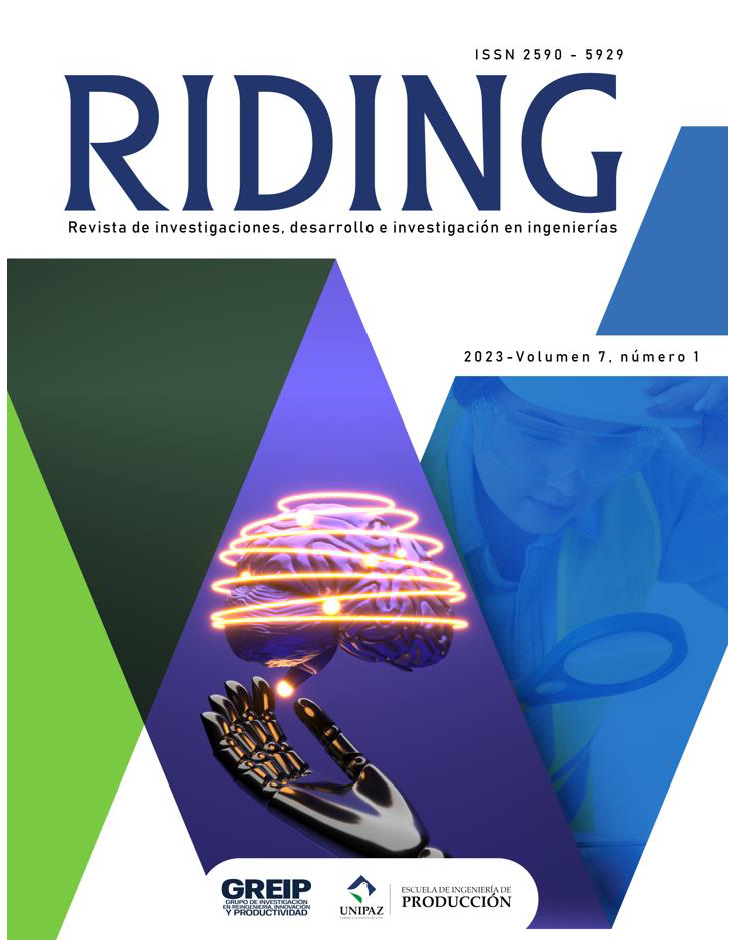Gestión de la demanda de energía eléctrica usando energías renovables: caso de estudio en una vivienda en Popayán, Cauca
Palavras-chave:
gestión de carga, controlador lógico programable, sistema solar fotovoltaico, red pública, energías renovables.Resumo
Ante el incrementó del consumo de energía eléctrica las empresas de energía debería construir nuevas centrales eléctricas para atender la demanda afectando el medio ambiente; para disminuir estos efectos a nivel mundial se ha fomentado y reglamentado el uso de fuentes alternativas; así se propone el desarrollo de este proyecto para abastecer de energía eléctrica a una vivienda en el Municipio de Popayán, Cauca; teniendo como fuente principal energía solar fotovoltaica, realizando gestión automática de carga entre esta y la red pública, fomentando el uso racional y eficiente de la energía, el cumplimiento de políticas nacionales e internacionales y la disminución de emisiones de CO2. El abastecimiento desde la red fotovoltaica a las cargas depende del voltaje en el banco de acumulación y la irradiancia solar; así se implementa un sistema de gestión que realiza transferencia automática de los circuitos a la red pública de energía, o por el usuario de acuerdo con sus preferencias, pero sujeto a las restricciones técnicas impuestas en el banco de acumulación.
En este proyecto se caracterizó la potencia de los equipos instalados, se estableció la línea base para calcular los componentes del sistema fotovoltaico y su diseño eléctrico; se implementó un sistema de monitoreo, supervisión y control para efectuar transferencia de la carga entre el sistema fotovoltaico y la red pública; se ejecutaron pruebas para evaluar el funcionamiento de los equipos y la programación realizada, se realizó análisis cualitativo y cuantitativo mediante técnicas estadísticas de los resultados obtenidos donde se evidencia la correcta operación del sistema
Referências
Galván López, E., Taylor, A., Clarke, S., Vinny, C., (2014). Design of an automatic Demand-Side Management system based on evolutionary algorithms. Proceedings of the ACM Symposium on Applied Computing. 10.1145/2554850.2554959.
Fadiran ,J. I., Yuill W., Chowdhury, S., Chowdhury ,S.P. (2012). Practical Demand Side Management - A Programmable Load Manager. IEEE PES T&D 2012.
Tsui, K. M., Chan, S. C., (2012). Demand response optimizations for smart home scheduling under real – time pricing. IEEE transactions on smart grid. Vol. 3, no. 4.
Zheng, Y., Jenkins, B. M., Kornbluth, K., Kendall, A., & Træholt, C. (2018). Optimization of a biomass-integrated renewable energy microgrid with demand side management under uncertainty. Applied Energy, 230, 836–844. https://doi.org/10.1016/j.apenergy.2018.09.015
Murugaperumal, K., & Raj, P. A. D. V. (2019). Integrated energy management system employing pre-emptive priority based load scheduling (PEPLS) approach at residential premises. Energy, 186, 115815. https://doi.org/10.1016/j.energy.2019.07.145
Noghreian, E., & Koofigar, H. R. (2020). Power control of hybrid energy systems with renewable sources (wind-photovoltaic) through switched systems strategy. Sustainable Energy, Grids and Networks, 21, 1–7. https://doi.org/10.1016/j.segan.2019.100280
Sarker, E., Seyedmahmoudian, M., Jamei, E., Horan, B., & Stojcevski, A. (2020). Optimal management of home loads with renewable energy integration and demand response strategy. Energy, 210. https://doi.org/10.1016/j.energy.2020.118602
Hemmatia, M., Ivatlooa. B. H., Abapoura M., Anvari-Moghaddamc A. (2020). Day-ahead profit-based reconfigurable microgrid scheduling considering uncertain renewable generation and load demand in the presence of energy storage. Journal of Energy Storage
Documentos para ENERGÍA ELÉCTRICA: Uso Racional y Eficiente. https://www.alcaldiabogota.gov.co/sisjur/listados/tematica2.jsp?subtema=24354.
Energía, Especial Eficiencia Energética, Colombia Normatividad Eficiencia Energética y Uso De Energías Alternativas, https://aidterritorial.wordpress.com/2014/06/01/, 01-06-2014.
Ministerio de Minas y Energía, UPME. (2016). Plan de acción indicativo de eficiencia energética 2017 – 2022. https://www1.upme.gov.co/Documents/PAI_PROURE_2017_2022.pdf
Dabur, P., Sinhg G., Yadav, N. (2012) Electricity demand side management: various concept and prospects. International journal of recent technology and engineering (IJRTE) ISSN: 2277_3878, volume-1, issue-1.
Hungerford, Z., Bruce, A., & MacGill, I. (2019). The value of flexible load in power systems with high renewable energy penetration. Energy, 188, 115960. https://doi.org/10.1016/j.energy.2019.115960
Jafari, M., & Malekjamshidi, Z. (2020). Optimal energy management of a residential-based hybrid renewable energy system using rule-based real-time control and 2D dynamic programming optimization method. Renewable Energy, 146, 254–266. https://doi.org/10.1016/j.renene.2019.06.123
Kafetzis, A., Ziogou, C., Panopoulos, K. D., Papadopoulou, S., Seferlis, P., & Voutetakis, S. (2020). Energy management strategies based on hybrid automata for microgrids on island with renewable sources, batteries and hydrogen. Renewable and Sustainable Energy Reviews, 134. https://doi.org/10.1016/j.rser.2020.110118
Leithon, J., Werner, S., & Koivunen, V. (2020). Cost-aware renewable energy management: Centralized vs. distributed generation. Renewable Energy, 147, 1164–1179. https://doi.org/10.1016/j.renene.2019.09.077.
Lopez, E. G., Taylor, A., Clarke, S., and Caill, V. Design of an automatic demand-side management system based on evolutionary algorithms. Distributed system group, school of computer Science and statistics, trinity college Dublin.
Parra, D., Norman, S. A., Walker, G. S., & Gillott, M. (2017). Optimum community energy storage for renewable energy and demand load management. Applied Energy, 200, 358–369. https://doi.org/10.1016/j.apenergy.2017.05.048
Rullo, P., Braccia, L., Luppi, P., Zumoffen, D., & Feroldi, D. (2019). Integration of sizing and energy management based on economic predictive control for standalone hybrid renewable energy systems. Renewable Energy, 140, 436–451. https://doi.org/10.1016/j.renene.2019.03.074
Tabar, V. S., & Abbasi, V. (2019). Energy management in microgrid with consideration of high penetration of renewable resources and problem of generation of surplus energy. Energy, 189. https://doi.org/10.1016/j.energy.2019.116264
Teki, V. K., Maharana, M. K., & Panigrahi, C. K. (2020). Study on home energy management system with battery storage for peak load shaving. Materials Today: Proceedings, https://doi.org/10.1016/j.matpr.2020.08.377
Publicado
Edição
Secção
Licença

Este obra está bajo una licencia de Creative Commons Reconocimiento-NoComercial-CompartirIgual 3.0 Unported.


